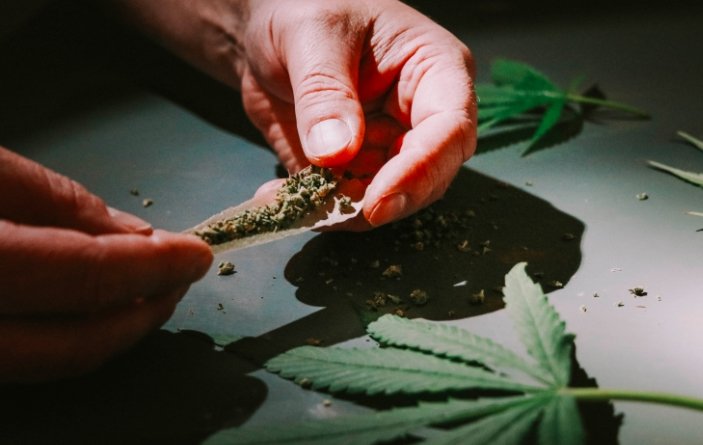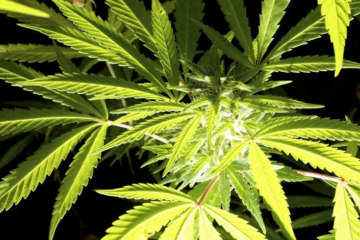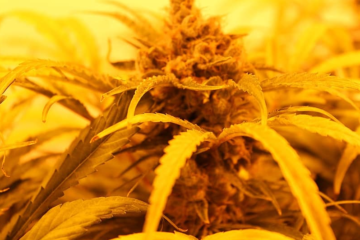As the presidential race heats up, the Lac Courte Oreilles Band of Lake Superior Chippewa in Wisconsin is closely monitoring the candidates’ stances on cannabis law reform. Despite the growing acceptance of cannabis in neighboring states, Wisconsin maintains strict prohibition, leaving the tribe unable to participate in the lucrative cannabis industry. Tribal leaders are hopeful that federal reforms could pave the way for their involvement in this billion-dollar market, which they believe could bring significant economic benefits to their community.
The Struggle for Legalization
The Lac Courte Oreilles Band of Lake Superior Chippewa has long advocated for the legalization of cannabis, viewing it as a sovereignty issue. Tribal leaders argue that lifting federal prohibitions would allow them to exercise their rights as a sovereign nation and enter the cannabis market. Currently, cannabis in all forms, except for CBD products, remains illegal in Wisconsin. This prohibition stands in stark contrast to neighboring states like Minnesota, Michigan, and Illinois, where recreational cannabis sales are legal.
Bill Trepanier, the tribe’s secretary and treasurer, highlighted the economic implications of this disparity. “The states surrounding us have gone legal, and there’s a lot of tax money leaving the state. We’re just wondering why Wisconsin is not making a move here,” he said. The tribe’s inability to participate in the cannabis industry has resulted in missed economic opportunities and revenue that could have supported community development and services.

The tribe’s frustration is compounded by the fact that other tribes across the country have successfully entered the cannabis market. In states like New Mexico, tribes are actively involved in growing, operating, and investing in cannabis businesses. This success story serves as a model for what could be possible in Wisconsin if federal and state laws were reformed.
Federal and State Legal Landscape
The legal landscape for cannabis in the United States is complex, with federal and state laws often at odds. While some states have legalized cannabis for recreational and medicinal use, it remains illegal at the federal level. This creates a challenging environment for tribes, which must navigate a patchwork of regulations and policies. The Lac Courte Oreilles Band of Lake Superior Chippewa is advocating for federal reforms that would provide clarity and consistency, allowing them to operate within the legal framework.
The tribe’s efforts are part of a broader movement among Native American tribes to assert their rights and participate in the cannabis industry. Tribal leaders are calling on the federal government to recognize their sovereignty and allow them to regulate cannabis on their lands. This would enable tribes to create jobs, generate revenue, and invest in community development projects.
The upcoming presidential election is seen as a critical moment for cannabis law reform. The tribe is closely watching the candidates’ positions on this issue, hoping that the next administration will prioritize cannabis legalization and support tribal sovereignty. Until then, the tribe remains committed to advocating for change and exploring all possible avenues to achieve their goals.
Economic Potential and Community Impact
The economic potential of the cannabis industry is significant, and the Lac Courte Oreilles Band of Lake Superior Chippewa is eager to tap into this market. Tribal leaders believe that cannabis legalization could bring substantial economic benefits to their community, including job creation, increased revenue, and improved public services. The tribe’s reservation, which spans approximately 80,000 acres, offers ample opportunities for cannabis cultivation and related businesses.
In addition to economic benefits, cannabis legalization could also have positive social impacts. The tribe envisions using revenue from cannabis sales to fund education, healthcare, and infrastructure projects. This would enhance the quality of life for tribal members and support long-term community development. The tribe’s commitment to sustainability and environmental stewardship aligns with the principles of the cannabis industry, making it a natural fit for their economic development strategy.
The tribe’s advocacy for cannabis legalization is driven by a desire to create a better future for their community. By participating in the cannabis market, they hope to build a more prosperous and self-sufficient community. The tribe’s leaders are determined to continue their efforts, regardless of the challenges they face, and remain optimistic about the potential for change.



